DevTools Update: 2025 InfraRed Report
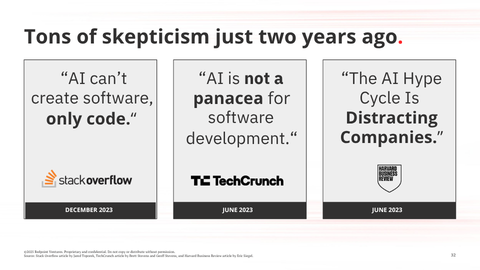
Let’s pretend to go back in time just 18 to 24 months ago. There were a lot of naysayers on AI’s potential for the broader developer ecosystem.
When many people believed that AI was causing a hype cycle in the tech industry, and that beyond writing simple code, AI would never be able to design real software and impact software development.
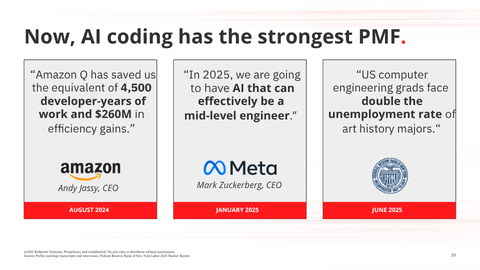
Fast forward to today - AI in coding is the application with the strongest PMF by far.
We have seen AI products like GitHub Copilot, Cursor, and Windsurf take the world by storm.
Across the board some of the largest companies have highlighted the impact of AI on coding:
- AWS said AI has saved them 4,500 developer years
- Currently, computer engineering grads face double the unemployment rate relative to art history majors
- It certainly feels like the world of coding has changed forever.
So, what does this all mean for the rest of DevOps?
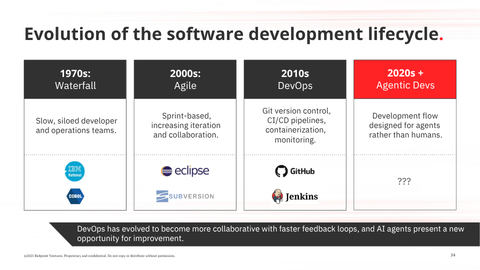
Let’s quickly take a step back and think about the evolution of software development.
Each iteration between the 70s and 2010s has aimed to make software development more continuous.
We went from independent dev and ops teams, to sprint-based development, and finally to DevOps itself with a very tightly coupled ecosystem. In the process, it’s created some iconic businesses like GitHub and Gitlab.
However, modern dev teams still operate sequentially with clear hand-offs between engineers and tooling. All of these processes were designed with human software engineers at the center.
The key difference we expect moving forward is that software development will not be human-centric. Instead, AI agents will be the ones developing software with humans in the backseat.
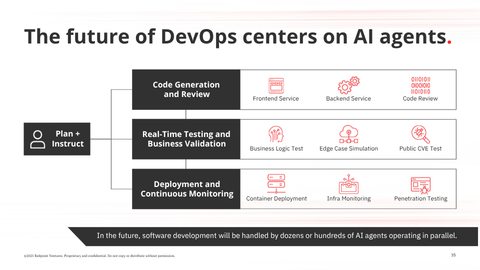
Here is our initial view of how DevOps will look in the future.
The key change is that this process won’t be sequential anymore. We will have swarms of AI agents executing different tasks in parallel.
Human engineers will become conductors or orchestrators, providing initial instructions and guidance whenever an agent needs direction, but will let agents handle the majority of the work.
And we think agent swarms will fall into 3 primary buckets:
- code generation and review
- testing and validation
- deployment and monitoring
We’ve already seen AI influence the first bucket with coding assistants like Cursor.
In the near future, we’ll have truly autonomous agents that can generate and review code without human intervention.
The second bucket will involve testing applications not just for coding logic but also understanding business context.
And the third bucket will enable an agent swarm that deploys and monitors production apps 24/7, always on.
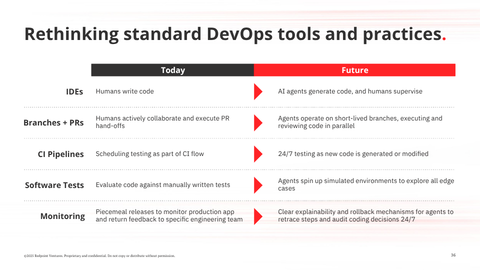
In a software development lifecycle powered by AI agents, all of our core tooling and best practices will be thrown out the window.
Rather than being designed for humans, they will be designed for agents.
We’ve highlighted some of the major changes we foresee here. Let’s just think about what happens when we have dev agents running 24/7.
Today, Humans actively collaborate, approve and execute pull-requests.
In an AI-native flow, all of this will change as we could have millions of agents operating in short-lived branches, executing and reviewing their code in parallel, while automatically merging that code downstream.
And since we will have many agents operating in parallel, we can do much more comprehensive testing, exploring potential edge cases beyond what the best developers could do.
That said, we will definitely need greater explainability. With human engineers we have clear hand-offs and distinct stop gaps, but with agents, we need more robust feedback loops and rollback mechanisms.
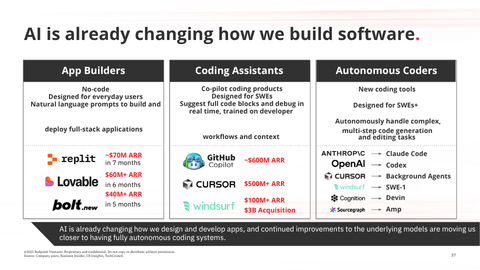
We’ve already seen a ton of interesting changes in AI development over the past year.
We’ve seen no-code app builders like Bolt and Lovable take the world by storm. Anyone can build a full-grade production app now.
Coding assistants like Cursor and Zed save developers countless hours every week and have empowered a whole new generation of business users to write code.
Finally, we can see the writing on the wall with truly agentic coding solutions like Cognition’s Devin and Sourcegraph’s Amp. Soon, we will have agents running in the background doing most of the work.
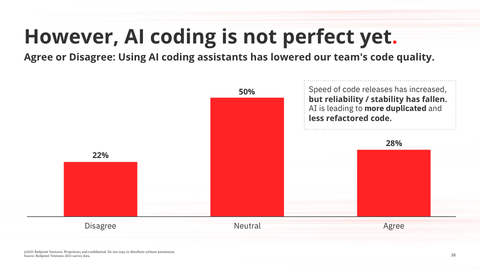
However, there are clear problems with the advent of these tools. Obviously, AI coding tools have accelerated the pace of development.
However, there’s concern that code quality is getting worse. Engineers are copying and pasting code from these tools, leading to more duplicated and less refactored code.
Only 22% of developers think that their team’s code quality hasn’t been worsened.
AI code quality remains a significant challenge, and a potential opportunity for new startups to address.
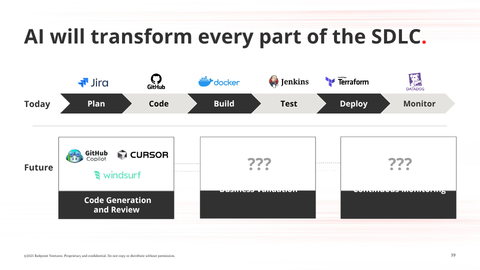
Ultimately we think that AI is going to transform software development end to end, and there are still a ton of problems to be solved.
Early winners like Copilot, Cursor, and Windsurf are transforming coding today, but we still see opportunity for more autonomous agents in the near future.
In other phases of the SDLC, we are still in the early innings. There are several exciting startups, some in this room, addressing parts of these workflows today.
We think AI adoption is only going to accelerate across the rest of the flow, and as it does, we will see some incredible businesses created in the process.
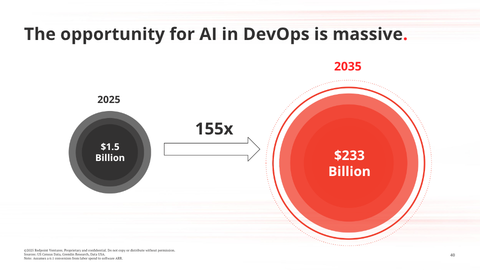
Taking a step back, AI has the opportunity to completely transform how we develop software.
Today we’ve seen excitement for copilot-like products, which has led to amazing commercial success for products like Copilot, Cursor, and Windsurf.
But we’re just cracking the surface, there are 10s of millions of software developers worldwide. As LLMs continue to improve, so much of their work could be addressed by AI.
Developers will always play a critical role in system design and agent supervision.
But we see a huge $230 billion revenue opportunity for AI products to transform software development and ultimately enable us to build even more exciting applications faster than ever.
Read the full InfraRed Report here.